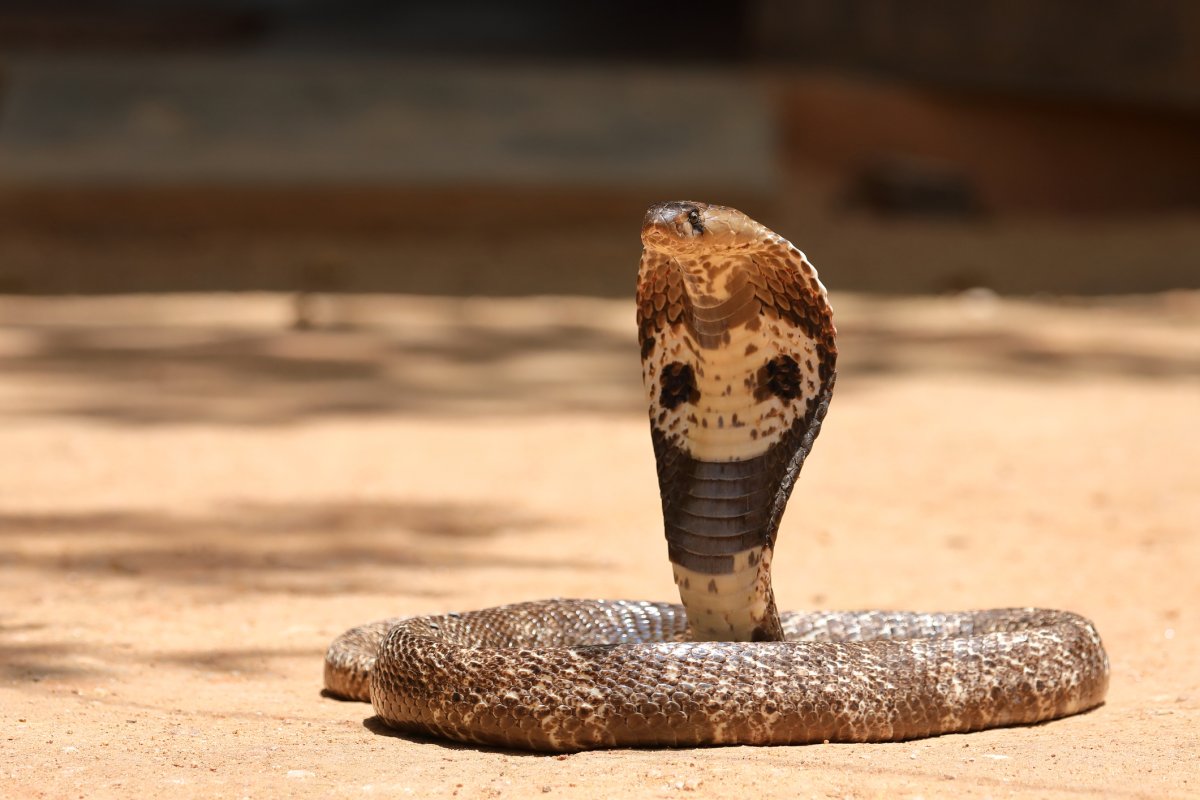A 26-year-old man from Uttar Pradesh in northern India has died after attempting to take a selfie with a venomous snake.
The man, who went by the name Dharamveer, was visiting the Kakoda fair in neighboring Budaun district when he came across a snake charmer. Hoping to get a selfie with the snake, Dharamveer took the animal from his keeper and put it around his neck, the Times of India reports.

The snake bit his left hand, and Dharamveer soon began to suffer seizures before falling unconscious. The snake charmer told the man's family that the reptile was non-venomous and provided them with medicinal herbs to stop the swelling.
As Dharamveer's condition worsened, his family rushed him to a community health center, but by then, it was too late.
It is safe to say you should never take a selfie with a venomous snake. Just months before, in Shahjahanpur district, in the same state of Uttar Pradesh, a 55-year-old snake catcher died after a similar selfie-imposed snakebite.
More than five million snakebites occur every year worldwide. This is a particularly big problem in India, where the World Health Organization estimates that, between 2000 and 2019, more than 1.2 million people died from snakebites, more than in any other nation.
Many bites go unreported, and victims often seek help from traditional healers to treat their wounds.
Jose Louies, director at the Wildlife Trust of India and founder of Indian Snakes, told Newsweek in October: "Most of the herbal healers are fake. Their treatments have no effect on the venom, and their success is the treatment of non-venomous [snakebites]."
In most cases, these are applied on top of the victim's skin, meaning they are unlikely to make their way into the bloodstream. Louies said there are some herbal remedies that can be used with anti-venom to treat snakebite wounds, but they cannot save lives.
Hundreds, if not thousands, of unnecessary deaths are thought to occur because of people opting for these alternative treatments. By the time they do go to hospital, it is usually too late.
Doctors said that, had Dharamveer been taken to hospital immediately to receive anti-venom, he could have been saved.
The snake charmer from Kakodo fair has now fled. Snake charming was officially banned in India in 1991 due to concern over the animals' welfare, but many snake charmers have continued to practice the trade.
Amit Kumar, the station house officer of Kadarchowk police station, said that they were keeping an eye on snake charmers at the fair. So far, no complaint has been filed by the victim's family.
Do you have an animal or nature story to share with Newsweek? Do you have a question about snakes? Let us know via nature@newsweek.com.
Uncommon Knowledge
Newsweek is committed to challenging conventional wisdom and finding connections in the search for common ground.
Newsweek is committed to challenging conventional wisdom and finding connections in the search for common ground.
About the writer
Pandora Dewan is a Senior Science Reporter at Newsweek based in London, UK. Her focus is reporting on science, health ... Read more
To read how Newsweek uses AI as a newsroom tool, Click here.





